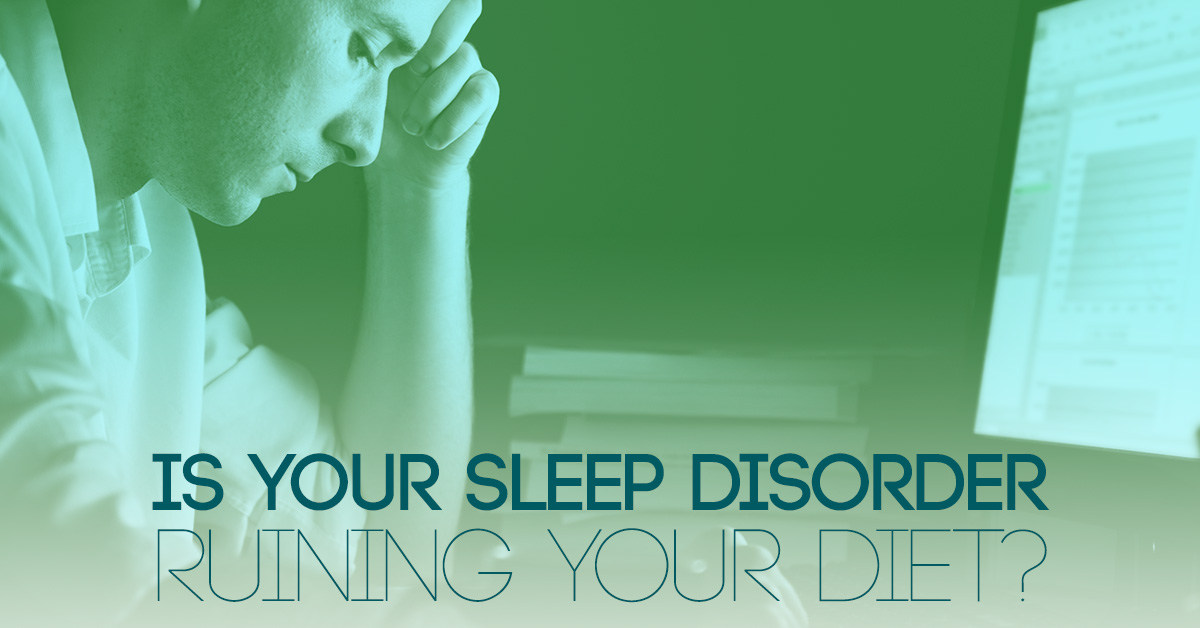Jan 16th 2017
Is Your Sleep Disorder Ruining Your Diet?

Have you resolved to lose weight in the new year?
Weight loss is one of the most common New Year’s resolutions; it’s right up there with saving more money and getting more organized. It’s no surprise that Americans are fixated on weight loss, especially when you consider the fact that over a third of adults in the U.S. are obese. A big part of losing weight is your diet, but if you are living with an untreated sleep disorder, like obstructive sleep apnea, you could be sabotaging your diet without even realizing it! Sleep deprivation affects the body in many ways, and as surprising as it is, sleep quality actually plays a huge role in what and how much you eat. Here are a few of the ways that sleep apnea (and other sleep disorders) could be ruining your diet:
#1. Sleep deprivation leads to an increase in eating.
In 2012, The Mayo Clinic conducted a study in which the eating habits of people who only slept two-thirds of their necessary sleep were compared to the habits of people who slept as much as their bodies needed. After just eight days, researchers determined that the sleep deprived subjects ate an average of 549 calories more than the subjects who got enough sleep. This is attributed to a reduction in leptin, which is a hormone that tells the body that it's full, and an increase in ghrelin, which is a hormone that tell that body that it's hungry, as a result of sleep deprivation.
#2. Sleep deprivation makes you crave fatty food and extra carbs.
One study found that, when you’re tired, not only are you more likely to crave high-carb and fatty foods, you’re also less likely to think about the consequences of eating those foods. Even just one night of not getting enough sleep can increase your cravings for these kinds of foods.
#3. Sleep deprivation leads to increased snacking.
While it’s true that some specialists encourage people to eat smaller meals and snacks frequently throughout the day, sleep deprivation can take your snacking habit to an unhealthy extreme. When combined with a decrease in physical activity — another side effect of sleep deprivation — this additional snacking can lead to an increase in weight.
#4. Sleep deprivation could cause you to miss out on the nutrients you need.
When you are sleep deprived, you tend to eat more, but just because you’re eating more calories, it doesn’t mean that you are getting the nutrients you need. One study found that people who are sleep deprived eat about half as many fruits and vegetables as people who sleep enough.
#5. Sleep deprivation changes your eating patterns.
Sleep deprivation disrupts your internal clock, which affects both natural sleep patterns and eating patterns. Sleep deprivation often leads to late-night eating habits, which can increase weight gain and make it even more difficult to fall asleep at night.
Don’t let your sleep apnea ruin your diet! Turn to CPAP Liquidators to get the used BIPAP and CPAP equipment you need. Shop with us today.
